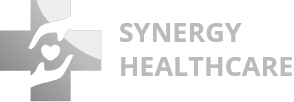A provider’s financial condition is essential for successful delivery of care to everyone who walks through the door. When the finances of health care organization is unstable, it lacks investment for advanced technology and skilled professionals. They also find it tough to maintain operational efficiency. A key area in healthcare finance is the management of accounts receivables (AR). Accounts receivable (AR), is the dollar value owed to healthcare providers for healthcare services. Its management can make or break an organization.
Synergy HCLS is a trusted name for healthcare financial solutions; thus, it enables the providers in optimizing their AR processes. So, you can achieve financial and operational efficiency.

1. Understanding Accounts Receivables in Healthcare
Accounts receivables (AR) refer to the unpaid payments owned for any healthcare services administered. It amounts to money transactions. You can get payments from different sources such as.
Patient Billing: Money paid by Patients directly. They pay money directly in case of any out-of-pocket expenses.
Insurance Claims: Payments made by insurance companies due to covered grounds.
AR should be collected in a timely manner so that there is a steady health flow of cash. If a provider does not collect Accounts Receivable (AR) on time, it may create a cash flow drain. This affects the provider’s operational costs and investment costs.
2. The Financial Health of Healthcare Providers
The ability of a healthcare professional to earn enough income, manage their costs, and create sustainability determines financial health. AR has an impact on key financial measures.
Cash Flow: A constant flow of payments allows a business to keep going.
Liquidity: When AR is managed properly, it can help the provider meet its short-term obligations timely.
Profitability: Less time taken to collect AR will result in less revenue loss leading to higher profitability.
If AR is delayed, you can run out of cash, which means you cannot pay staff, buy supplies, and maintain infrastructure.
3. Challenges in Managing Accounts Receivables
Healthcare providers typically face considerable difficulties in successfully managing AR, like.
Insurance Claim Denials and Delays: Keeping track of denied and delayed insurance claims can slow the process of collecting revenue.
Patient Payment Delays: Not that patients are holding on to their bills, they just might be delayed in paying. This further creates longer AR period for your practice.
Administrative Inefficiencies: Inefficient billing and communication can worsen AR problems.
For example, Synergy HCLS clients, for instance, reported difficulties involving frequent denials of claims and ineffective follow-up practices. Synergy HCLS helped providers enhance their AR management addressing their pain points.
4. Strategies for Effective AR Management
Updating AR management requires a mix of best practices and advanced tech. Key strategies include.
Making Billing Procedures Easier: Guaranteeing dependable claims completion.
Deploying Powerful AR Tracking Solutions: Using technology to monitor AR parameters in real-time.
Improving Patient Communication: Making billing clear and giving more payment options.
Utilizing Technology: Using EHR and billing software to eliminate manual processes through automation.
Synergy HCLS provides customized solutions that help healthcare providers streamline their AR processes for optimal revenue collection efficiency.
5. The Impact of AR on Cash Flow and Operations
The flow of cash is essential to making a healthcare company run smoothly. How well a provider can manage an AR affects a provider’s ability to:
Make timely payments to suppliers and employees.
Invest in and add new medical equipment.
Maintain smooth day-to-day operations.
If you have poor management of your AR, it can lead to a shortage of cash. When this happens, payroll gets delayed, the supply chain is disrupted, and at times, the quality of care also suffers.
6. The Importance of Optimizing AR Practices for Financial Health
Providers of home healthcare can improve their financial standing with better AR practices, including:
Activities see regularly analyzing financial reports probably find points of blockage in working.
Educating staff on best practices for billing and collections.
For support with end-to-end AR management, they are partnering with domain experts such as Synergy HCLS.
Synergy HCLS’ expertise can help the providers streamline AR processes, minimize delays and improve their bottom line.
7. Case Studies and Success Stories
Real-life examples highlight the transformative impact of effective AR management. Synergy HCLS has helped numerous clients achieve remarkable results, such as:
Case studies prove the transformational power of efficient AR Baystream with successful tips to managing your accounts receivable. So far, Synergy HCLS has enabled a great number of clients to experience some impressive results, including:
Accelerating AR collection by as much as 30%.
Enhancing overall revenue by streamlining the claims process
Better Patient Experience in Billing Communication No more excuses.
Working directly with a trusted AR Management specialist has benefits as these success stories illustrate.
FAQs
-
1. What is a Good Accounts Receivable Turnover Ratio for Healthcare Providers?
The benchmark for an ideal AR turnover rate by specialty falls between 30–50 days. That lower turnover rate highlights good AR management.
-
2. How does Synergy HCLS Handle Claim Denials?
This enables Synergy HCLS to take a proactive approach to denial management, including root cause analysis, claim resubmission, and payer communication for quick resolution of denials.
-
3. Which tools Synergy HCLS uses for AR management?
Using advanced billing software, analytics tools, and automated workflows, Synergy HCLS also helps them streamline AR processes, while giving accurate results.
-
4. Why is aging AR a concern?
This complicates couciding aging AR which can be detrimental as revenue can be lost. Hence, frequent follow-up and accurate tracking mechanism is important to lower aged receivable.
-
5. Does Synergy HCLS provide support with patient collections?
Yes, Synergy HCLS offers patient-friendly billing practices including transparent and easy-to-understand billing statements, online payment options, and patient access to support for billing inquiries.
-
6. Is it cost effective to outsource AR management?
Outsourced AR management through experts like Synergy HCLS lowers administrative costs, increases cash flow, and assures compliance—all of which is a cost-effective solution.
Conclusion
Healthcare providers must handle their accounts receivables well to maintain financial health. Providers can achieve financial stability and operational efficiency through timely collections, reduced claim denials, and adoption of advanced technologies. Synergy HCLS is the trusted partner for 360-degree AR solution with the ambition to enable healthcare enterprises to stay ahead in an ever-competitive environment.


